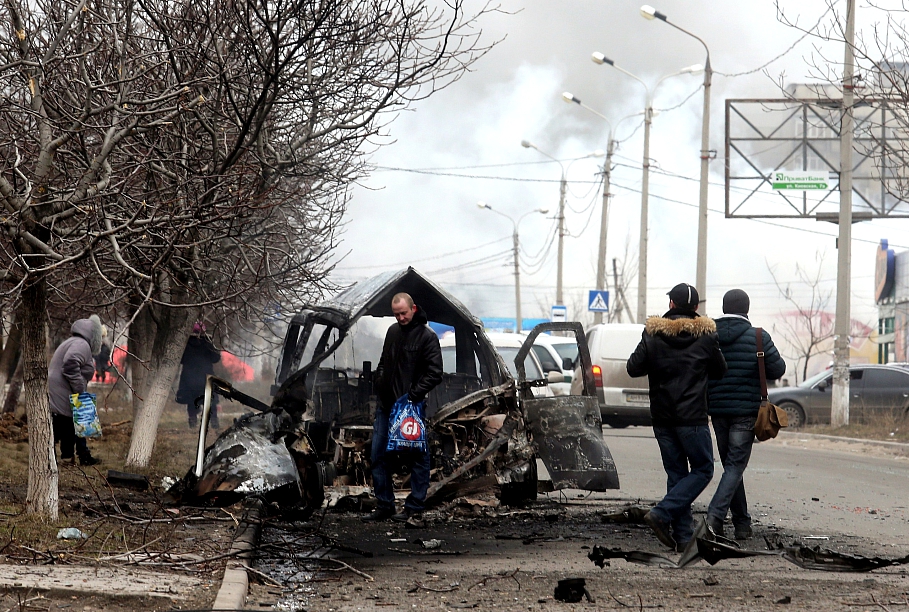Speaking on LTV Tuesday, Prime Minister Laimdota Straujuma said she was in favor of tough new sanctions given the ongoing offensive in eastern Ukraine by Russia-backed rebels, with mounting evidence that regular Russian troops may also be involved in the fighting.
"How else can we describe it other than a war when civilians are killed. We cannot say any longer that these are individual acts of terrorism - it is a war," Straujuma said.
"At our initiative, a meeting of EU foreign ministers has been convened on Thursday to discuss what sanctions are necessary," said Straujuma, referring to Latvia's current role holding the rotating presidency of the EU, which gives it a leading diplomatic role among the 28 member states until the end of June.
"Of course, no one actually wants these sanctions, because they influence not only Russia, but also ourselves and create tension in the world, but the events [in Ukraine] prove that Russia clearly knew the Minsk ceasefire terms, but did not follow them. We cannot just sit back and look on because this is a war," Straujuma reiterated.
In contrast, President Andris Berzins on Monday backed a more cautious approach.
Speaking to the Bloomberg newswire, Berzins stressed the need to maintain neighborly relations with Russia.
“In my opinion, there would be some very precisely targeted sanctions, but not general,” Berzins said, suggesting that adding more individuals to an EU entry blacklist might be appropriate.
“It was a joke for me before, but currently this is the reality, we have to do our best to have good neighbors and remain forever only neighbors.”
In an interview with LNT commercial television Tuesday, the President said he had not ruled out visiting Moscow ahead of a planned May 9 parade to mark the end of the Second World War.
At least 30 were killed and around 100 injured in shelling and rocket attacks in the east Ukrainian city of Mariupol on January 24, 2015 when Russia-backed insurgents launched a major offensive, shattering an already fragile ceasefire.





























